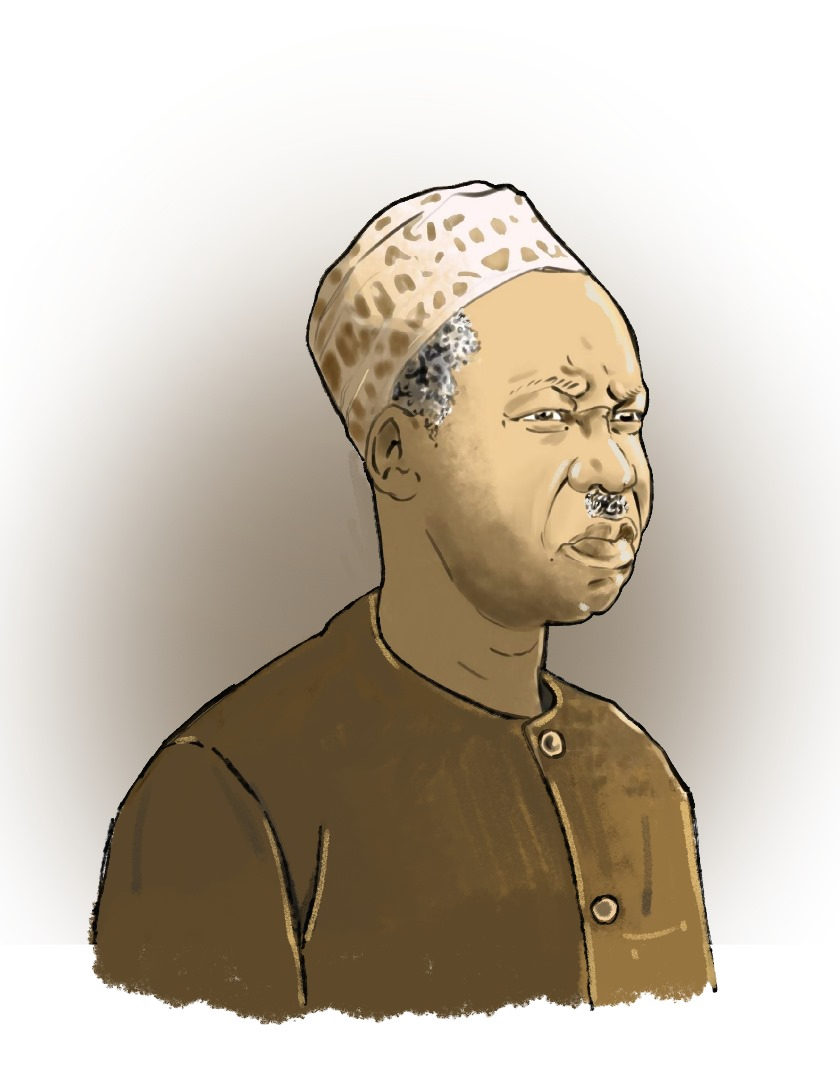Julius Kambarage Nyerere was the first president of Tanganyika from 1962 to 1964 and of its successor state, Tanzania until 1985. He was an anticolonial activist, pan Africanist, political theorist, an essayist, a teacher, a translator, a promoter of Kiswahili language and an accomplished poet. This short biography is not about his statesmanship, which has left a great deal to be desired by people around the world and which already has been documented in countless books but rather about his championing role in Kiswahili and its literature.
Nyerere’s contribution to Kiswahili
Julius Nyerere was a keen Kiswahili reader, a fluent speaker, a poet and an advocate for adoption of Kiswahili as the official language in Tanzania and in other African countries. His interest in Kiswahili and literature brought him into close association with then prominent poets like Shaaban Robert, Amri Abeid, Mathias Mnyampaya, Mwinyi Hatibu Mfaume and others, directly and through reading their works in newspapers.
Nyerere was the first person to translate two of Shakespeare’s works – Merchants of Venice and Julius Caesar to Kiswahili, producing some of the first plays in Kiswahili, Mabepari wa Venisi, 1961 and Julias Kaizari 1972 respectively and proving a point that Kiswahili was well equiped to reproduce such world-class works. As a poet, some of his poems, Usawa wa Binadamu and Chombo cha Taifa were published in 1965 in an anthology booklet – Mashairi a Hekima na Malumbano ya Ushairi by the Union of Swahili poets – UKUTA, for which Nyerere wrote the preface. Nyerere later wrote the four gospels in Kiswahili in poetic form and published it in 1996.
The contribution of Julius Nyerere to Kiswahili language and literature goes far beyond his individual works. His government is acknowledged for creating policies and policy environment that enabled the language to be adopted as the national language and language of the government and also established Kiswahili courses at the University of Dar es Salaam in 1967, making the ùniversity the first in the world to offer the course at degree level. Tanzania was also the first contry to incorporate Kiswahili in A-Level curriculum in 1970. This move inspired and produced some of the greatest Kiswahili literary luminaries, who went on to become acclaimed authors and teachers who went on to serve many universities around the world - Farouq Topan, Euphrase Kezilahabi, Ebrahim Hussein, Penina Muhando, May Balisidya, Amandina Lihamba, M. M. Mulokozi and K. K Hahigi, to mention a few. It is arguable that, without the political will and the vision of proudly embracing the language as both a tool of communication and an African identity, Kiswahili literature would not have made the leap it made between 1962 and 1980. This observation is partly based on the rapid advancements of Kiswahili in Tanzania observed during this period. Its also worth noting that these advancements were in the backdrop of retarding environment in the period leading to independence, when the colonial government, under Lord Twinning waged a derogatory campaing to undermine the language by associating it with slave trade.
The foundational work of the University of Dar es Salaam, in particular, Taasisi ya Uchunguzi wa Kiswahili (TUKI and now TATAKI) and National Kiswahili Council - BAKITA, bears its success in Nyerere’s government. These institutions executed strategic projects in training and research on Kiswahili that went on to become the benchmark for other regional universities. Nyerere indirectly supported the development of the first monolingual dictionary of Kiswahili by providing subsidy which covered publisher’s editorial work and printing. The dictionary was launched in 1981, and Nyerere received the first copy of the dictionary in his capacity both as the then Chancellor of the University and a committed supporter of the Kiswahili cause. The dictionary has been one of the most outstanding achievement of TUKI. A selection of Nyerere’s quotations about Kiswahili will serve to cast light on his vision and commitment:
“... ni wajibu wetu sote kujaribu kama tunavyoweza kuikuza lugha yetu katika kuandika, kusema na katika kuwaza”. (Nyerere in Nsekela 1971:5).
...Shirikisho la nchi za Afrika ...litawezekana kwa kuungana kwa nchi moja moja... nchi za Afrika ya Mashariki zina lugha moja ambayo ina nguvu ya kuziunganisha nchi hizi, nayo ni lugha ya Kiswahili. (Hungu 1971:32).
“Making Kiswahili Tanzania’s language helped us greatly in the battle against tribalism. If every Tanzanian had stuck to using his tribal language or if we had tried to make English the official language of Tanzania, I am pretty sure that we would not have created the national unity we currently enjoy... we have... an enormous duty to continue to promote and enhance Kiswahili. It is a great weapon for our country’s unity” (quoted in Laitin 1992:91/2).
“Wapo watu wasiosadiki kwamba jambo lolote la maana linaweza kuandikwa kwa Kiswahili... Lakini si kweli kusema kuwa Kiswahili kilichopo hakiwezi kikatumiwa katika uandishi wa vitabu mbali mbali kuhusu mambo ya utaalam” (Nyerere 1966:v).
In the long history of Kiswahili Nyerere’s commitment, pragmatic approach and vision enabled Kiswahili to overcome critical years where the political climate was much in favour of English.

